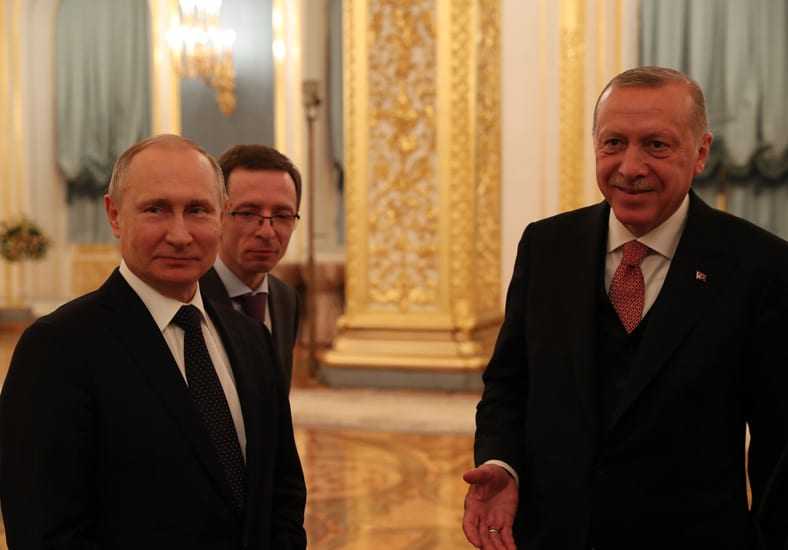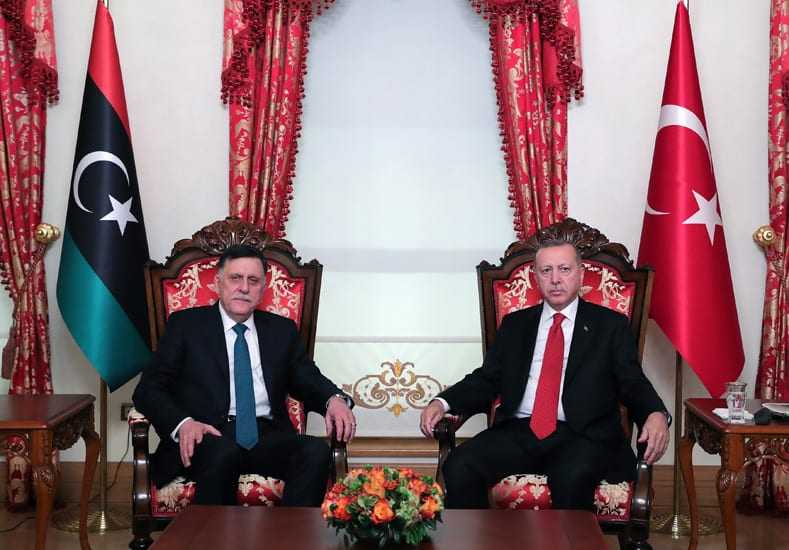By Yahya Bostan, Daily Sabah
The Beltway establishment has been mulling over the following issues for some time: Has Turkey’s axis shifted? Are the Turks turning away from the United States and getting closer to Russia?
Turkey’s critics in Washington allege that its axis has shifted – to such an extent, indeed, that the country’s NATO membership deserves to be scrutinized. A smaller number of American experts, who are no less critical but undoubtedly more committed to the Turkey-U.S. relationship, express concern about deepening cooperation between Ankara and Moscow.
There are many reasons why U.S. observers are inclined to think that way. Turkey’s search for an independent regional policy is on top of that list. The Turks no longer meet Washington’s demands when Turkish and American interest is at odds. When the two countries have shared interests, however, Turkey remains capable of maintaining a warm relationship with the United States. Needless to say, the convergence of national interests has recently become harder to witness. An obvious exception is the joint effort to increase the annual trade volume to $100 billion. Likewise, Turkey and the United States have similar approaches to the situation in Idlib, Syria.
To be clear, Turkey does the same thing with Russia. Where Turkish and Russian interests are aligned, Ankara works closely with Moscow. In this regard, the Turks and the Russians took a number of joint steps in the Syrian theater. The strong communication between Recep Tayyip Erdoğan and Vladimir Putin brought their countries closer on a range of issues. Let us recall that Erdoğan has a unique chemistry with Donald Trump as well – which is a huge opportunity for further strengthening Turkey-U.S. relations.
This is to say that the American experts, who wonder whether Turkey’s axis has shifted, are asking the wrong question. No, Turkey’s axis remains the same. But the country is pursuing its vital interests – not to the (dis)advantage of any other nation. At the heart of Turkey’s foreign policy is the Turkish national interest.
Turkey experiences the same kind of problems, which plague its relationship with the United States, in its dealing with Russia as well. The situation in Idlib is a case in point: Moscow and the Russian-backed regime forces have launched a fresh offensive against the region, targeting urban areas and killing civilians in the process. This escalation, without a doubt, fuels tensions between Turkey and Russia, undermining their bilateral relations. Another area of disagreement is the situation in northern Syria. The Russians had promised the Turks to facilitate the terrorist organization PKK’s withdrawal some 30 kilometers away from the Turkey-Syria border. Whether Moscow delivered on that promise remains highly doubtful.
There is now an additional source of friction between Turkey and Russia – the most recent developments in Libya. Turkey works with Fayez Mustafa al-Sarraj’s Government of National Accord (GNA), which the United Nations recognizes as the country’s legitimate administration. It is no secret that al-Sarraj’s government has requested Turkish support to defeat Khalifa Haftar, whose forces have launched incessant attacks against Tripoli. Until now, Turkey’s support for the GNA had been limited to the political and diplomatic arena. In light of a recent military and security cooperation agreement between the two countries, Turkish support could take the form of military assistance.
Russia, by contrast, has decided to throw its weight behind Haftar the coup plotter rather than Libya’s legitimate, internationally-recognized government. According to sources, Moscow provided military support, including some 1,600 Russian mercenaries, to Haftar’s forces. What the Kremlin hopes to accomplish in Libya is open to question. Yet Moscow’s support for Haftar will be a source of friction between Turkey and Russia. Ankara and Moscow work closely in a range of areas, including energy and security, yet that won’t stop the Turks from stopping the Russians in the Libyan theater. Indeed, a Turkish delegation is set to visit the Russian capital in the coming days to share Turkey’s concerns.
American experts, who keep questioning Turkey’s axis, should find something better to do with their time – like monitoring the situation in Libya very closely.





